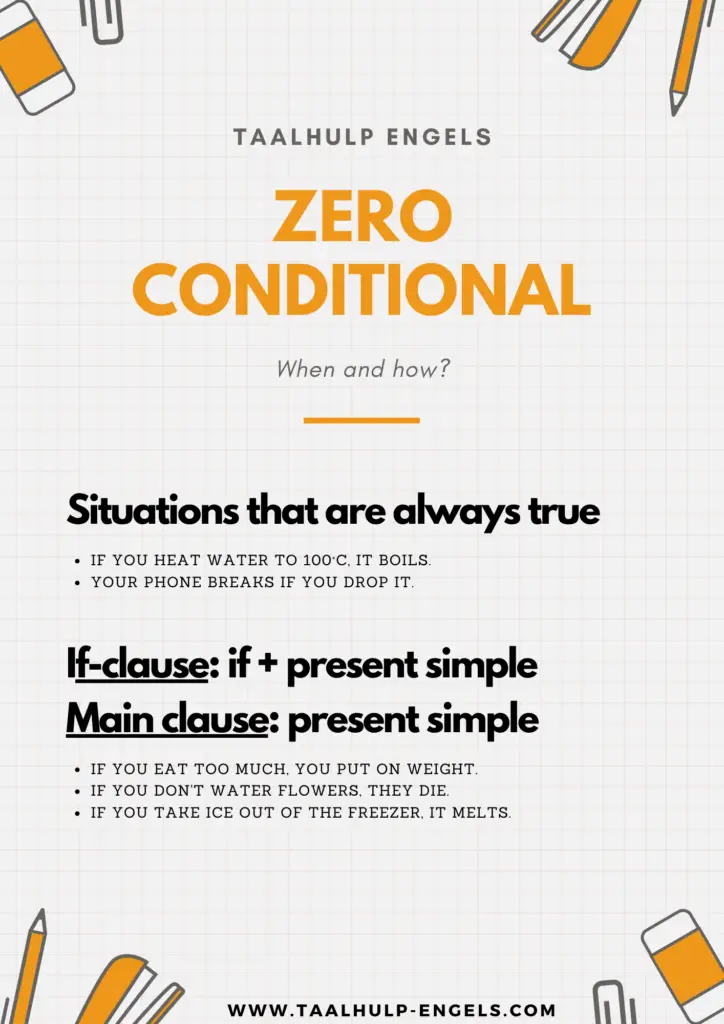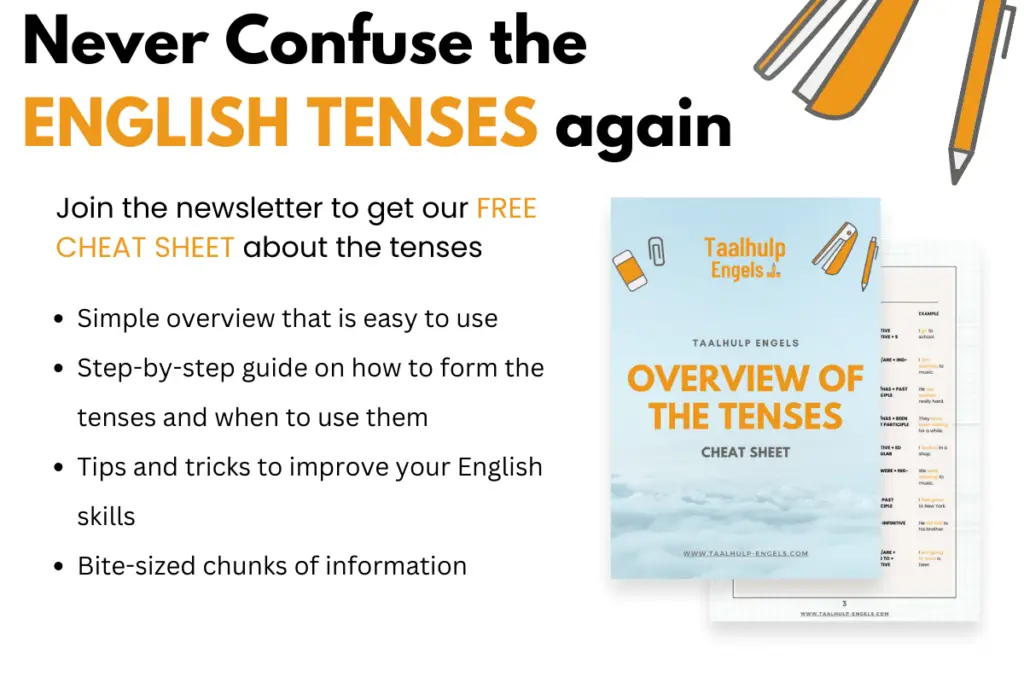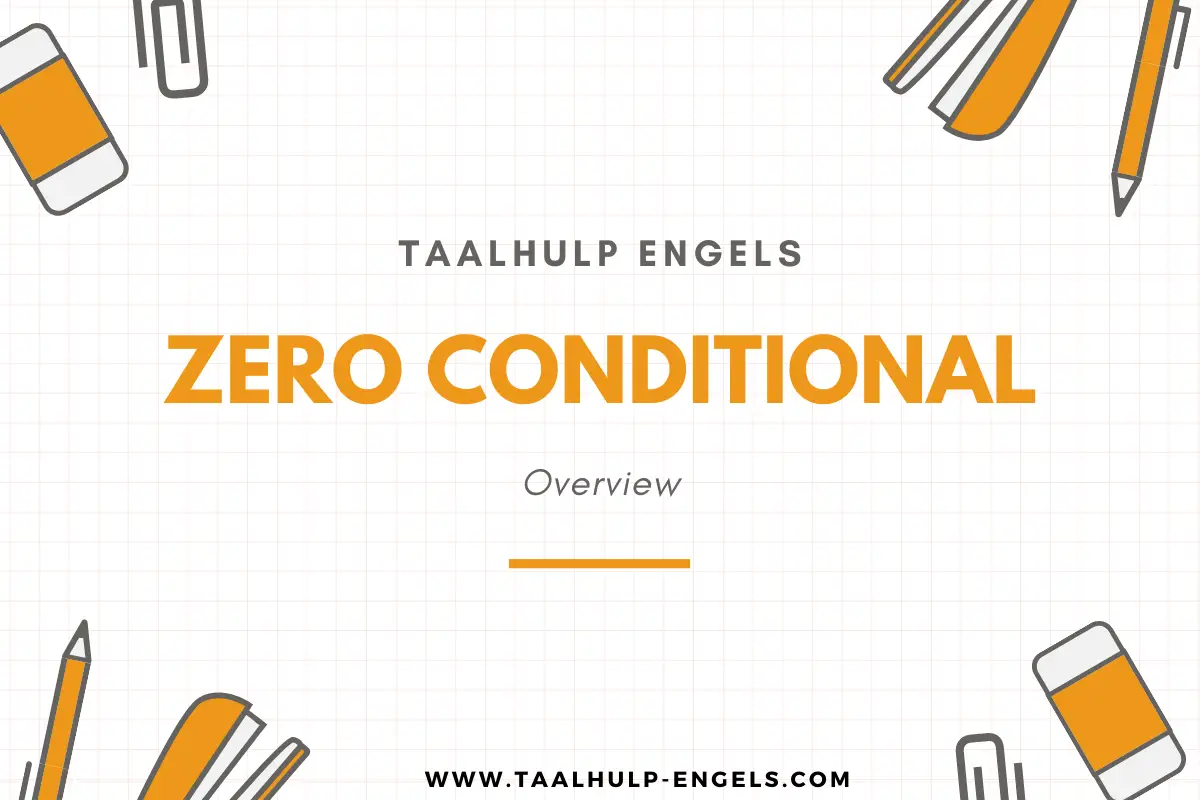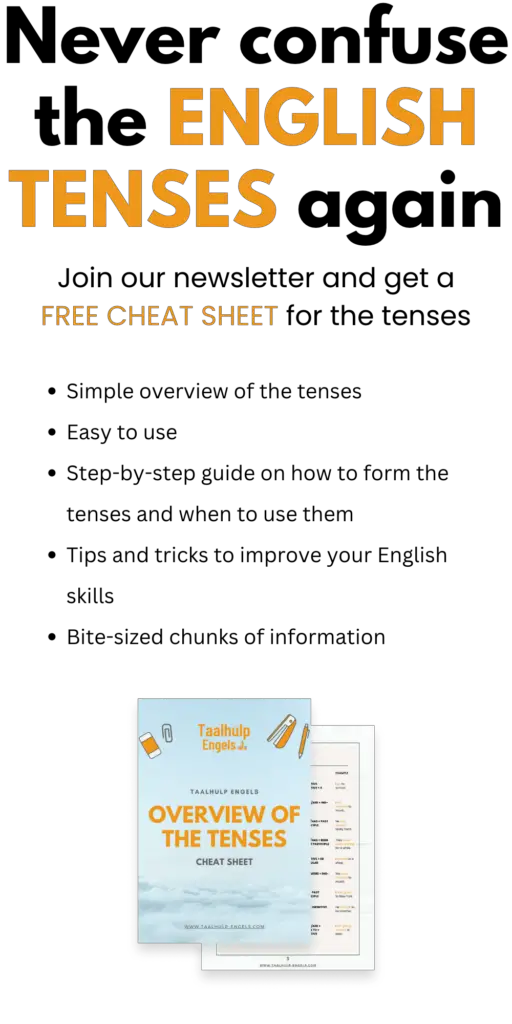The zero conditional is the easiest if clause you can use in English. This means that these sentences have ‘if’ or ‘when’ in them and a result of a certain condition. This article offers a complete overview of what the zero conditional is, how to form it and there are also exercises at the bottom of the page.
Zero conditional
The zero conditional is used when you have a condition and a situation that is the result of that condition. You use the zero conditional to talk about situations that are always true. It is commonly used to talk about general or scientific facts or even to give instructions.

Take a look at the examples below:
- If you heat water to 100°C, it boils.
- Your phone breaks if you drop it.
Zero conditional form
Before knowing which tense to use, it’s important to know that conditional sentences consist of two parts: the if-clause and the main clause. The if-clause is the clause where you would find ‘if’ or ‘when’ and the main clause is the result of the condition (the rest of the sentence). Take a look at the examples below to see the difference:
| If-clause | Main clause |
|---|---|
| If I take a shower, | I get wet. |
| If you freeze water, | it turns into ice. |
It’s possible to replace ‘if’ with ‘when’ in a zero conditional. The meaning of the sentence doesn’t change.
- When I take a shower, I get wet.

The verbs in a zero conditional should be in the present simple. The verb in the if-clause and the verb in the main clause need to be in the present simple.
| If-clause | Main clause |
|---|---|
| If you eat too much, | you put on weight. |
| If you don’t water flowers, | they die. |
| If you take ice out of the freezer, | it melts. |
Keep in mind that the order of the clauses can be different. It’s perfectly possible that the main clause comes first:
| Main-clause | If-clause |
|---|---|
| You put on weight | if you eat too much. |
| Plants die | if you don’t water them. |
| Ice melts | if you take it out of the freezer. |


Exercises
Related articles
- Present Tenses Overview
- The First Conditional
- The Second Conditional
- The Third Conditional
- Conditionals: Overview



